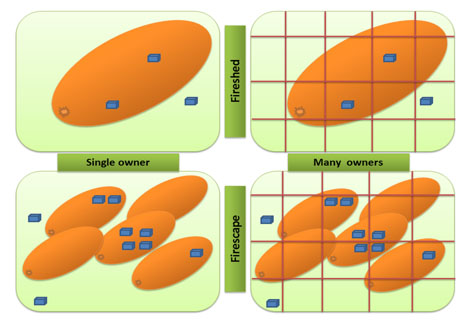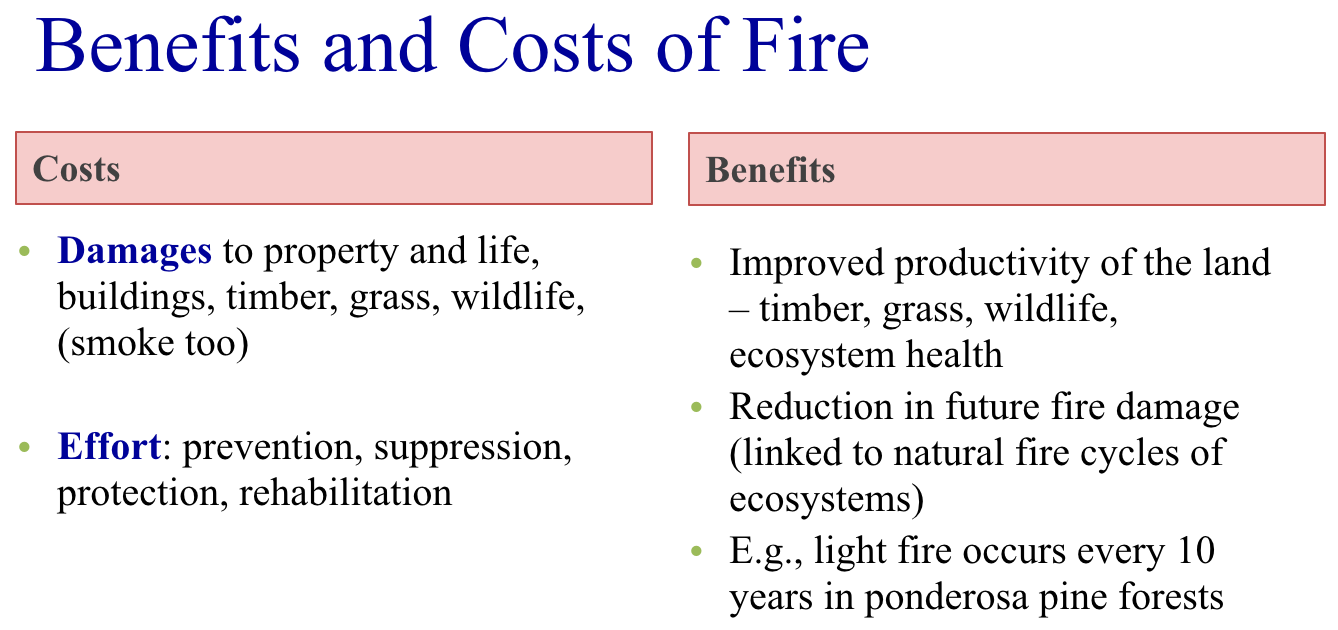What are the economics of wildfire? What policy reforms would foster more efficient fire management? At PERC’s 2016 Wildfire Solution Summit, authors Dean Lueck and Jon Yoder share the findings from their policy report Clearing the Smoke from Wildfire Policy: An Economic Perspective.
The Economic Institutions of Wildfire Management with Dean Lueck
- Wildfire is an unusual “asset” to own and manage.
- Wildfire suppression organizations are complicated and full of seemingly strange incentives.
- Wildfire incentives are weak – except for direct point protection.
To think about firefighting as an economic problem, it helps to conceptualize firesheds, just as we think about watersheds and airsheds.
The fireshed is a well-defined area of land that will occasionally carry a natural fire. A firescape is a larger landscape in which there are a multitude of firesheds, perhaps overlapping.
Fire scientists describe the typical fire as an ellipse. Fires grow very rapidly and when it comes to suppression efforts, timing is everything.
A fire that starts at an ignition point A and has the potential to grow all the way to the boundary of the fireshed, represented by the outermost ellipse. Suppression effort may reduce the size of the area burned, but it comes at a cost. If sufficient resources are close at hand for a rapid response, it may be possible for the fire to be stopped quickly, near point A. But ignition points are not known in advance, and it is costly to distribute a network of suppression assets for rapid response. As the fire gets larger and moves toward concentric ellipse B, the flaming front of the fire becomes longer, requiring more assets to stop the fire progression along the entire front.
Different land ownership structures can make wildfire prevention and suppression extra challenging, especially as more homeowners build in the wildland-urban interface.
Evaluating Data and Potential Reforms with Jon Yoder
We often pay attention to the costs of wildfire suppression, without thinking of the benefits of wildfire suppression, or the costs and benefits of wildfire itself.
Wildfire mitigation banking allows fire managers to invest in pre-season planning and contracting to mitigate wildfire and minimize wildfire suppression costs.
Read the full report, Clearing the Smoke from Wildfire Policy: An Economic Perspective.
Read a two-page summary of the report.
Listen to more content from the Wildfire Solutions Summit.
Learn more: live-perc-wp.pantheonsite.io/wildfire








